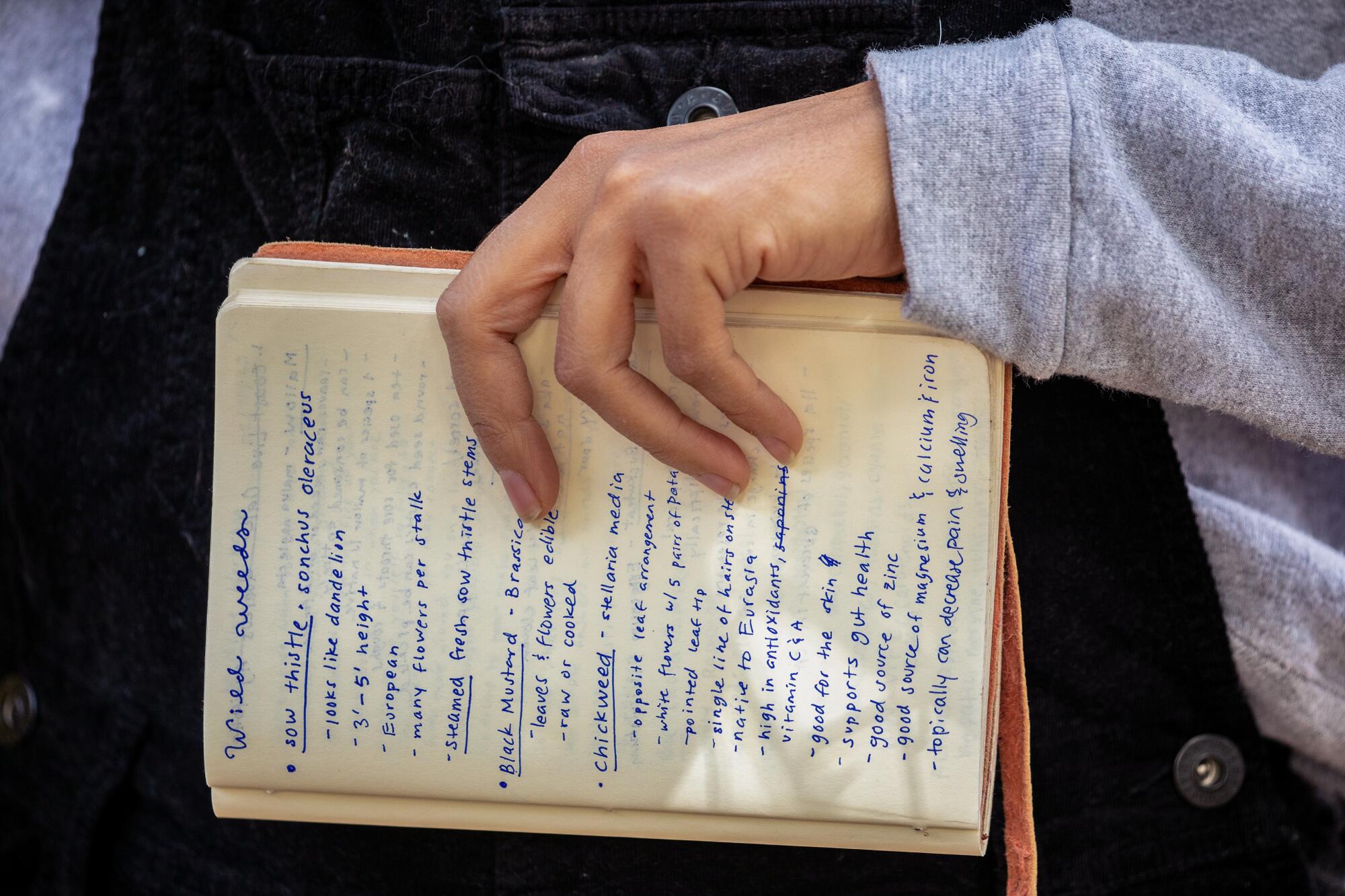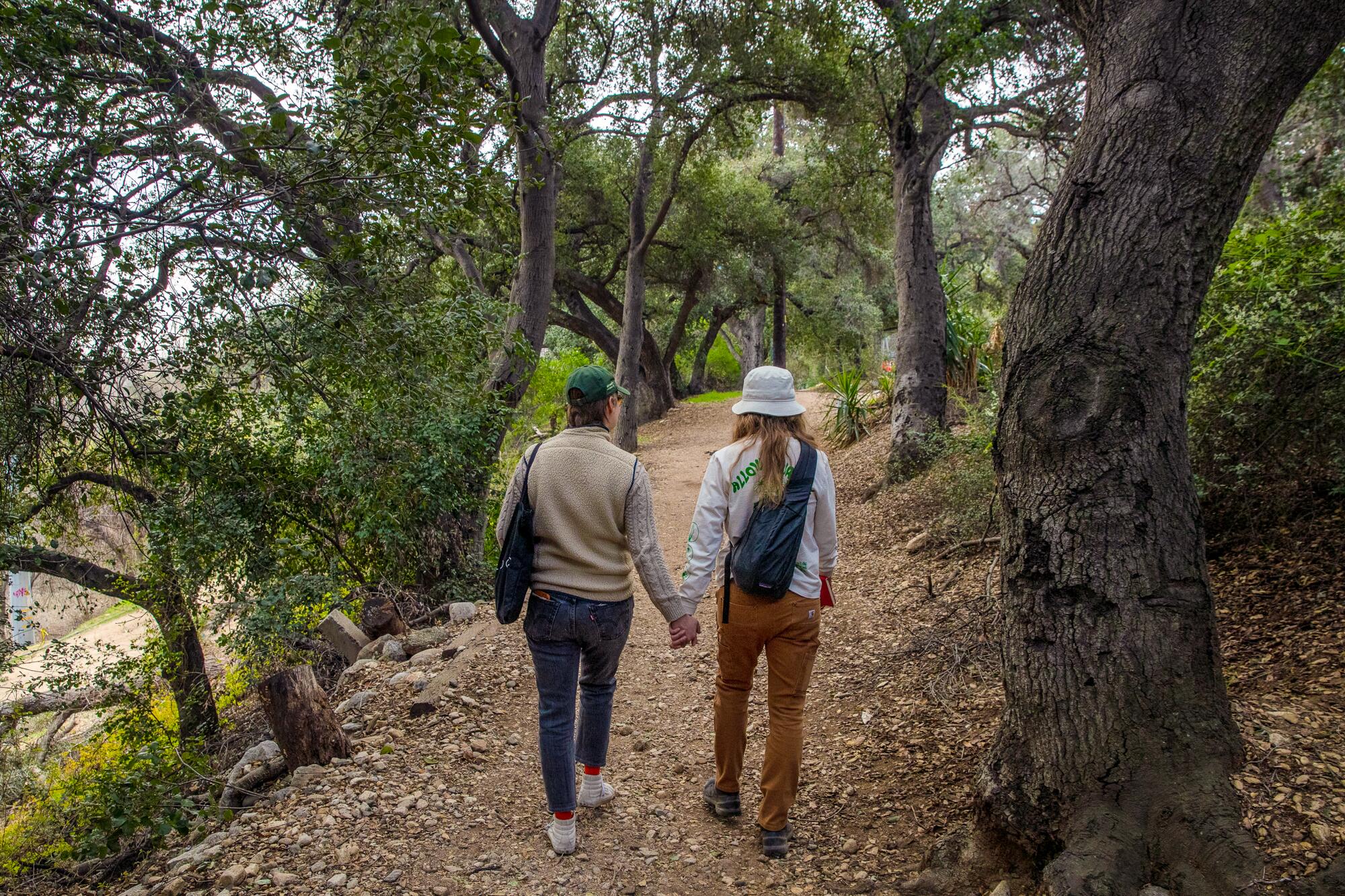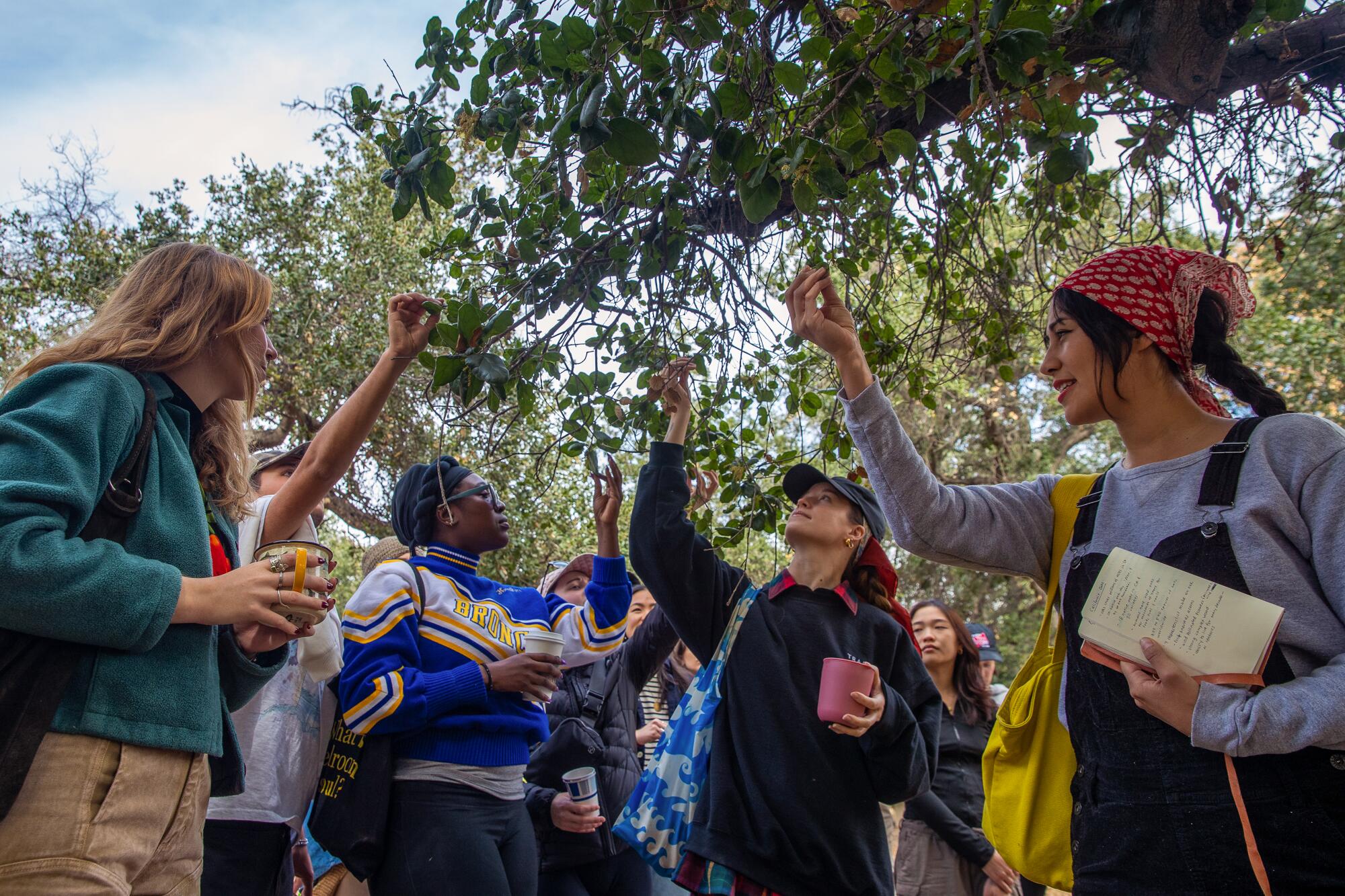
Get out into nature, they said. Los Angeles is no more than two hours from snow, beach, mountains or desert (depending on traffic). It’s free, they said. To Michael Washington — founder of USAL Project, a company offering guided nature excursions in Los Angeles — this all sounds great in theory. But for the unfledged, it’s not that easy or welcoming. He hopes he can bridge that gap.
Washington first tried to tap into existing nature programs in the L.A. area. When he attended a foraging convention last year, he felt ostracized. “I walked in and it was all white people over 50. When I tried to ask questions, I got such a cold shoulder. It was so uninviting. I was like, ‘This is the issue,’” he says.
So he began toying with the idea of creating a diverse place for the outdoors-curious. Not an expert himself, he worried about being judged. After months of deliberation, he decided that was why he was the perfect candidate. As a novice, he was the target customer and he knew he could tap experts to help. He could create the group he had failed to find.
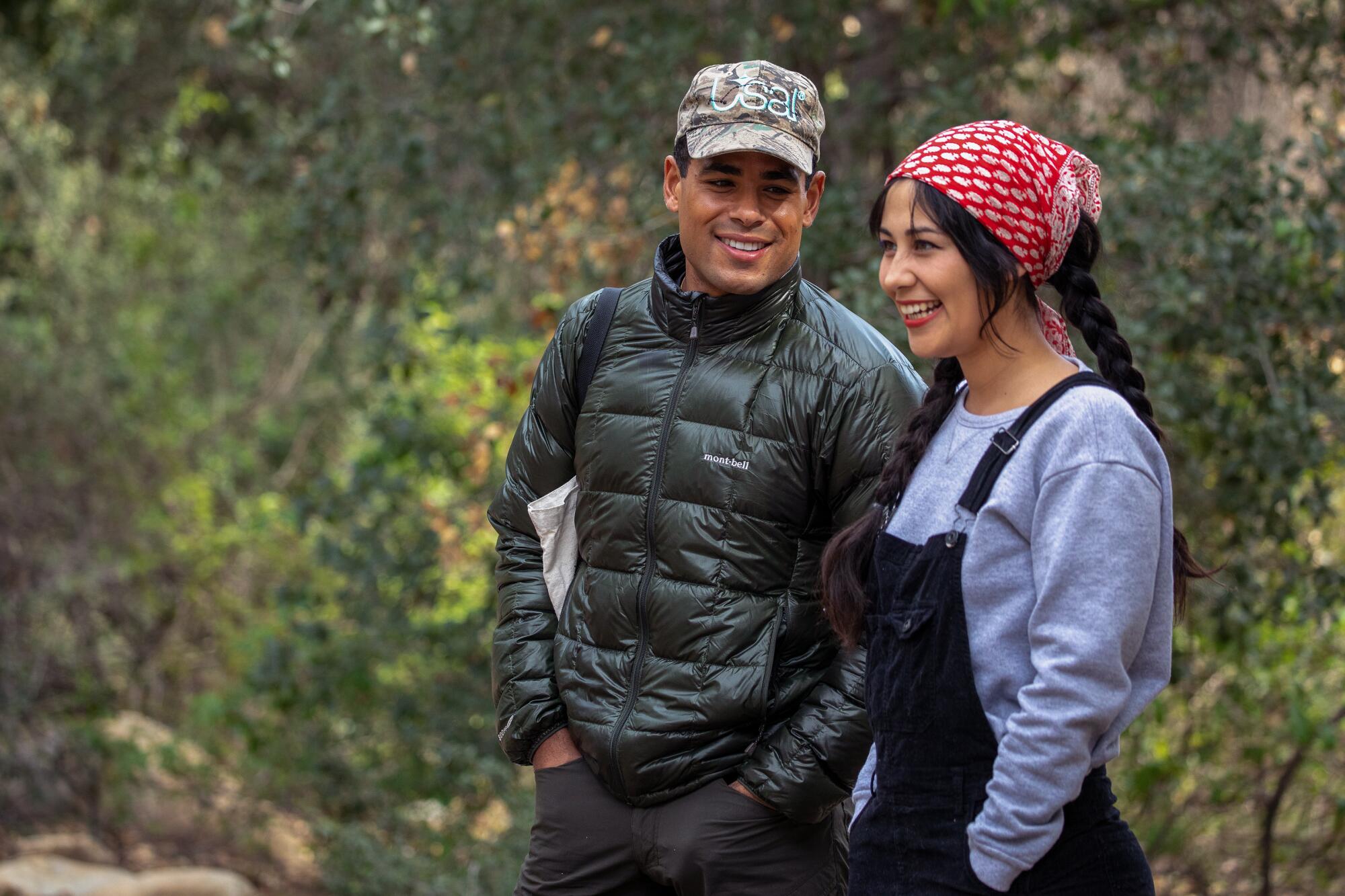
He was also ready for a big life change, one that embraced nature and invigorated his creativity. At one point, his job as a talent manager in the music industry meant helping artists tell their stories. Then it became a viral race that required shark-like instincts he couldn’t fake. But that wasn’t the dream. He wanted to find his way back to being a storyteller. The outdoors led him there.
“People are always like, ‘Wow, what you’re doing now is so different,’ but to me it really isn’t. It’s a lot of the same skill set,” says Washington, 32. “It’s producing events, it’s marketing, it’s storytelling. It’s connecting the dots to a wider community, to a landscape, to a location through activity and a shared interest. The vessel then was music, the vessel now is the outdoors.”
Working as a talent manager, Washington was pulled away from his love of the outdoors. Raised in San Antonio, he developed an interest in nature while studying at the University of Colorado Boulder. After graduating, he moved to Los Angeles, where on the rare weekend off from working with his clients — internationally touring DJs and budding indie-rock musicians — he’d pile his gear into a camper van and find a new pocket of the state to unplug in.
These adventures led Washington to Usal Beach in Humboldt County, where he could surf, camp and hike. He’d later follow in Patagonia’s footsteps and name his organization USAL Project after the area that inspired it. But at the time, his interest in the outdoors was just beginning to eclipse the love he once had for the music industry; with it, his Instagram feed morphed from pictures of nights out to photos of idyllic coastlines and smiling selfies on steep mountains. Both friends and strangers noticed the shift. In a few years, he’d find a way to make the outdoors his full-time job, but in the meantime, he savored every moment at Usal.
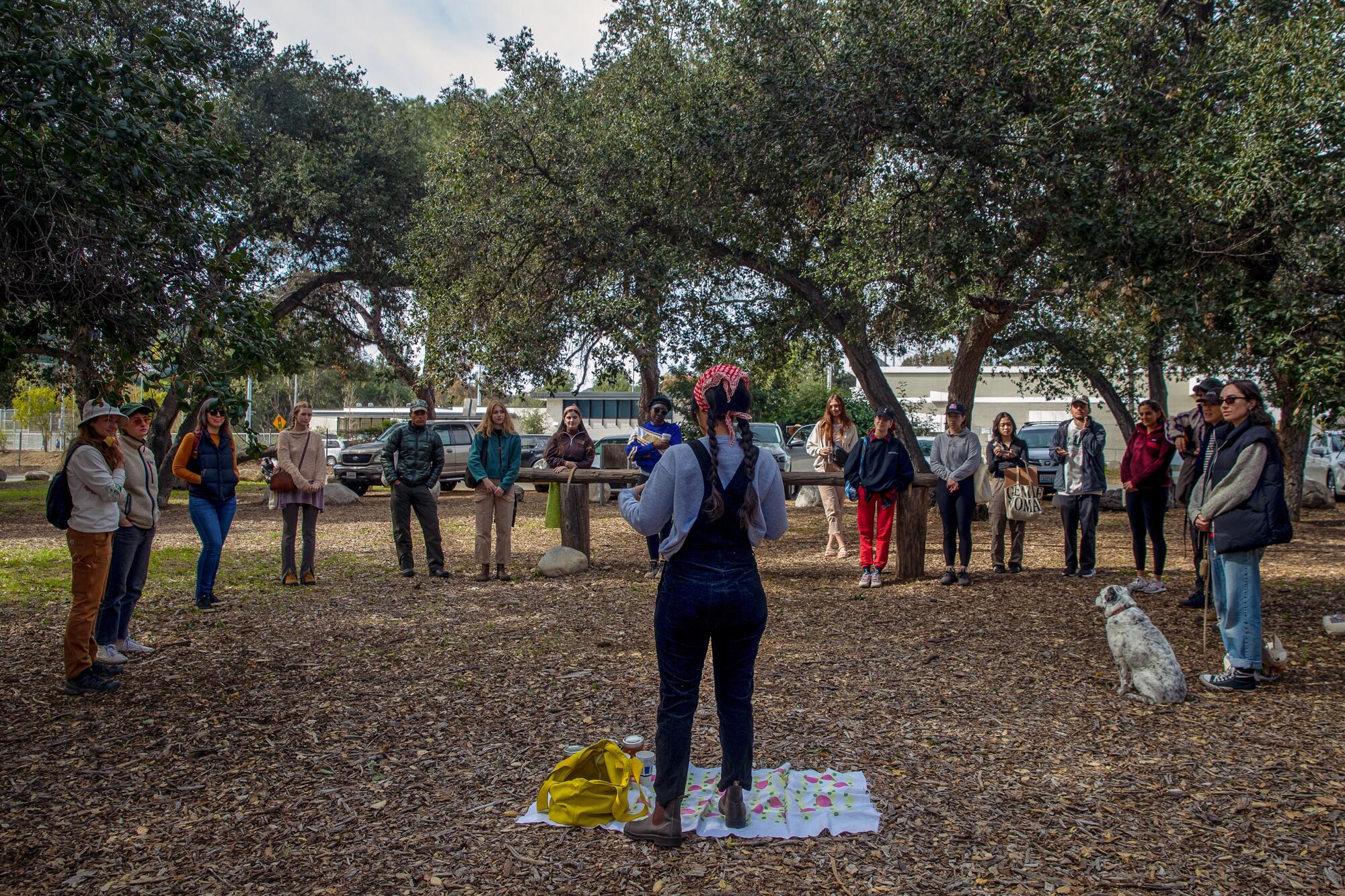
“Strangers would reach out to me online with long messages telling me how sharing my nature photos and hikes has helped them. It surprised me, but it made me feel really good, and I started trying to figure out how I could do this in a way that felt purposeful,” Washington says.
It was clear Washington wasn’t the only Los Angeles resident craving more time outdoors. Closures during the early days of the COVID-19 pandemic forced people out of their comfort zones, exploring nearby trails for socially distanced walks. Outdoors performance gear has even influenced fashion trends and prompted Gucci’s collaboration with North Face.
Through USAL, Washington hopes to shift what the average outdoorsman looks like, acknowledging that the wealthy, white, male archetype is a result of systemic racism and classism that have led people of color like him into neighborhoods and socioeconomic situations that make the outdoors less accessible.
“The outdoors is different from other activities because of the safety level. You can’t get started alone,” he says. “Learning how to do something the right way isn’t just good, it can be the difference [in] saving your life. Being around teachers that come from the same city as you, from the same generation as you, maybe are similar skin color as you, helps.”
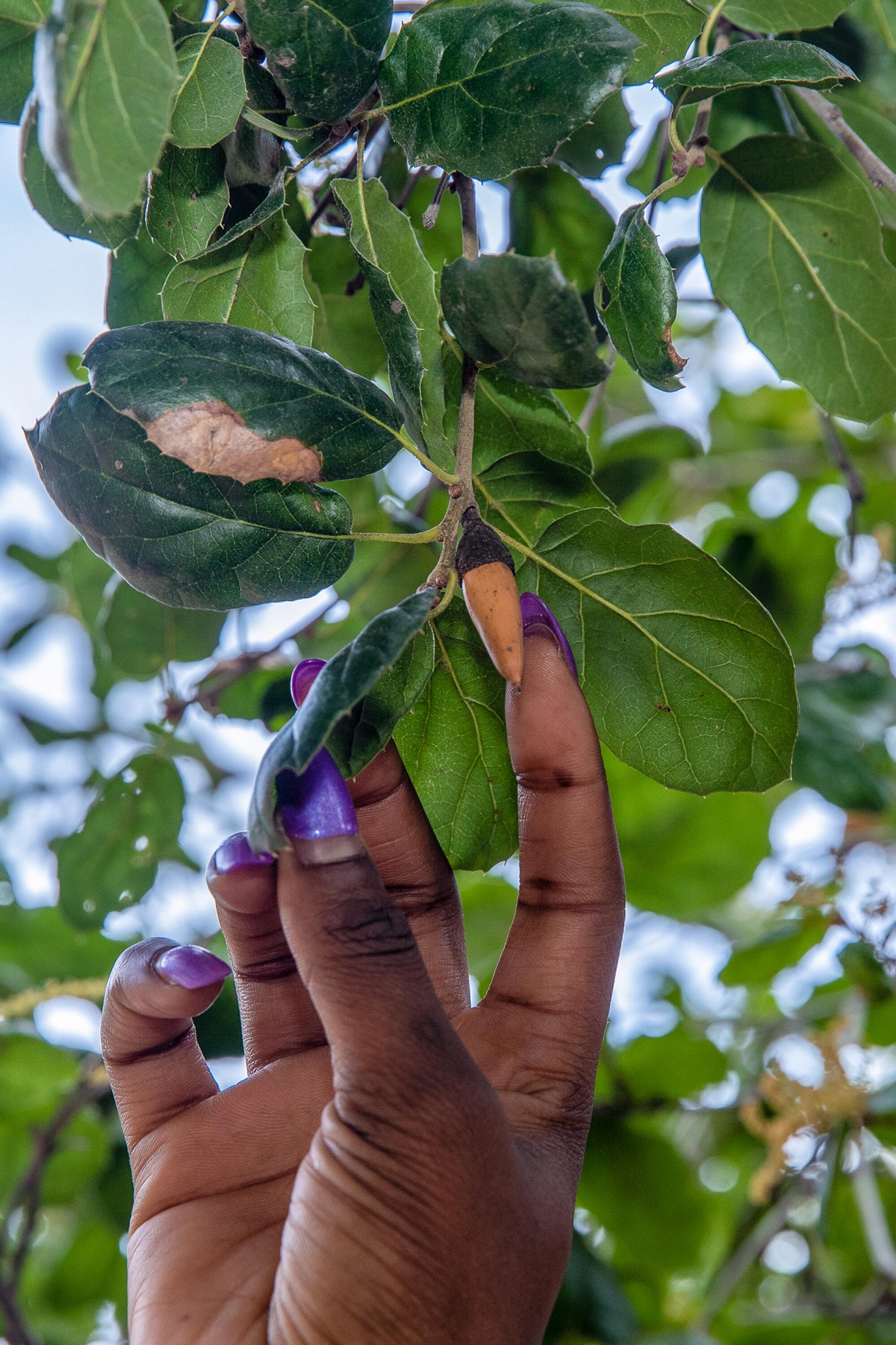
On Earth Day 2022, USAL Project launched its first event, a foraging workshop. The next month, Washington quit his job in music.
Under the curation of Washington and his newly appointed business partner, DJ and chef Zoe Gitter, USAL Project hosts 20 to 25 events per month in the Los Angeles area. A gardening techniques class is $20, while a guided herb walk or foraging hike is $30. For the thrillseeker, there are falconry ($100) or oceanic species dives ($120). Less physical activities include breathwork workshops ($35), ceramics ($85), beading ($100) and compost bin making ($55). Weekend-long trips focused on camping, backpacking and spearfishing are hosted in Joshua Tree, Morro Bay and Big Sur ($80-$200). All events include materials and equipment and are guided by field experts.
USAL is not the only brand offering guided nature trips in Los Angeles. “You can get a guided fishing trip anywhere,” says Washington. In many cases, USALs pricing is competitive, but the brand hopes to differentiate itself with a clear mission.
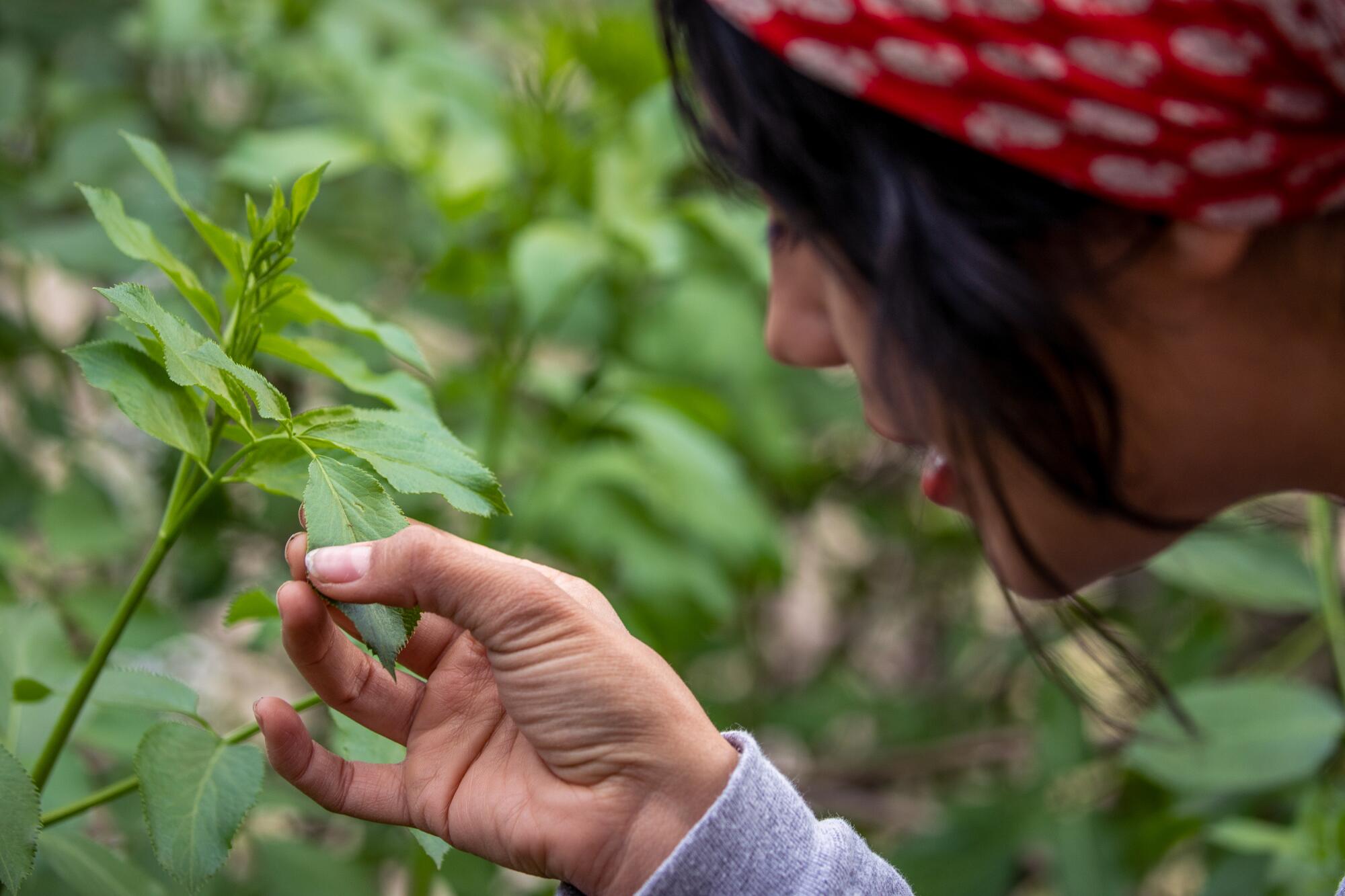
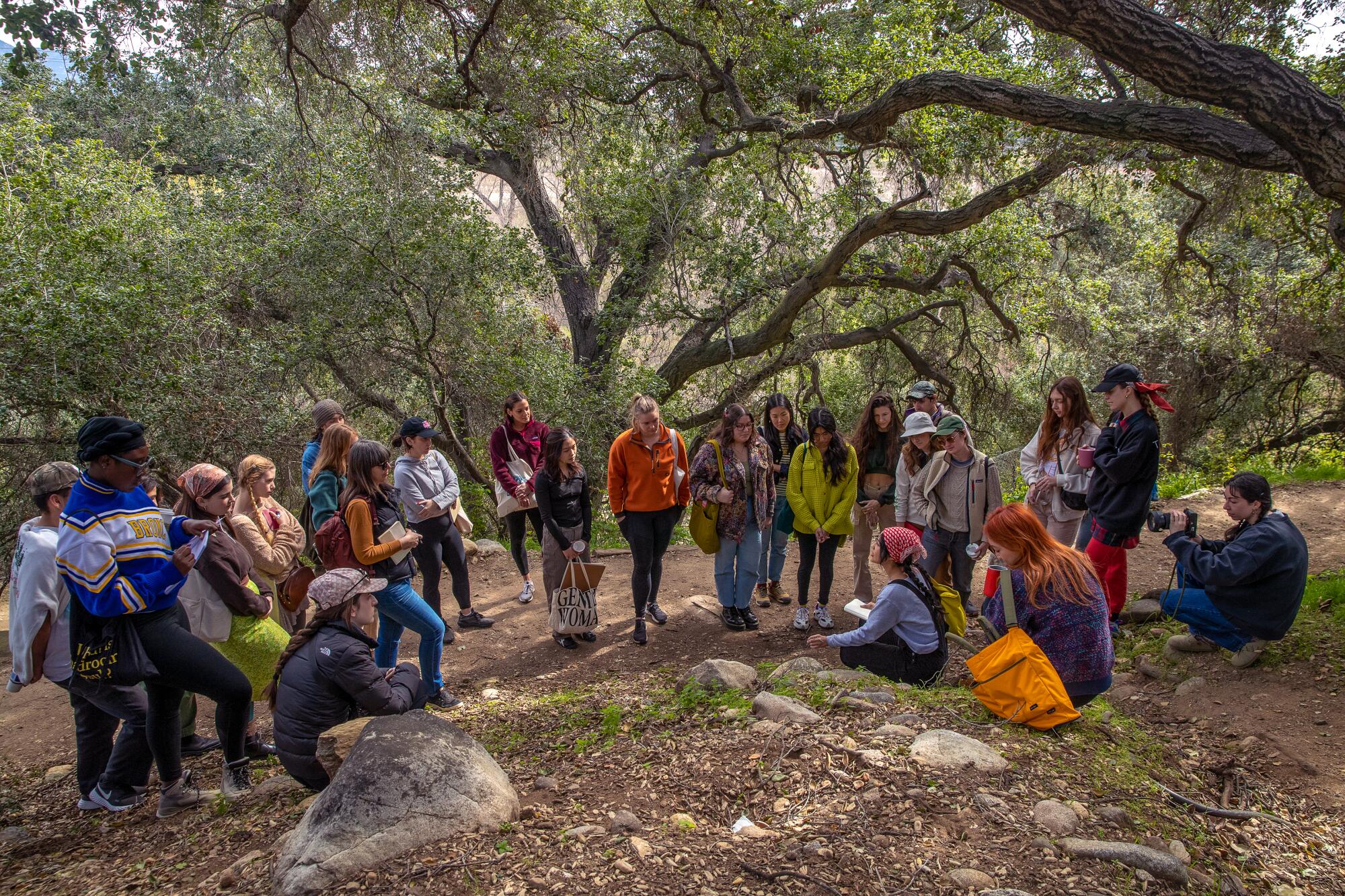
“A lot of times, nature activities get looped into wellness on one side and fitness on the other. Where we sit is somewhere in the middle of that,” Washington says. “Our guides are different because they’re teaching the human connection to the activity and how it helped their lives. The goal is to help people see why these activities are extremely important and not only fun but important for your life routine.”
On a brisk Saturday morning, about 30 20- and 30-somethings gathered in Hahamongna Watershed Park in Pasadena. Washington stood quietly in the back, letting Andrea Jimenez of Herb Walk L.A. guide the group in identifying plants from stinging nettle to California sagebrush. Attendees asked dozens of questions, some sketching each herb and others foraging a bouquet for medicinal use. The event, one of USAL’s mainstays, sells out every time.
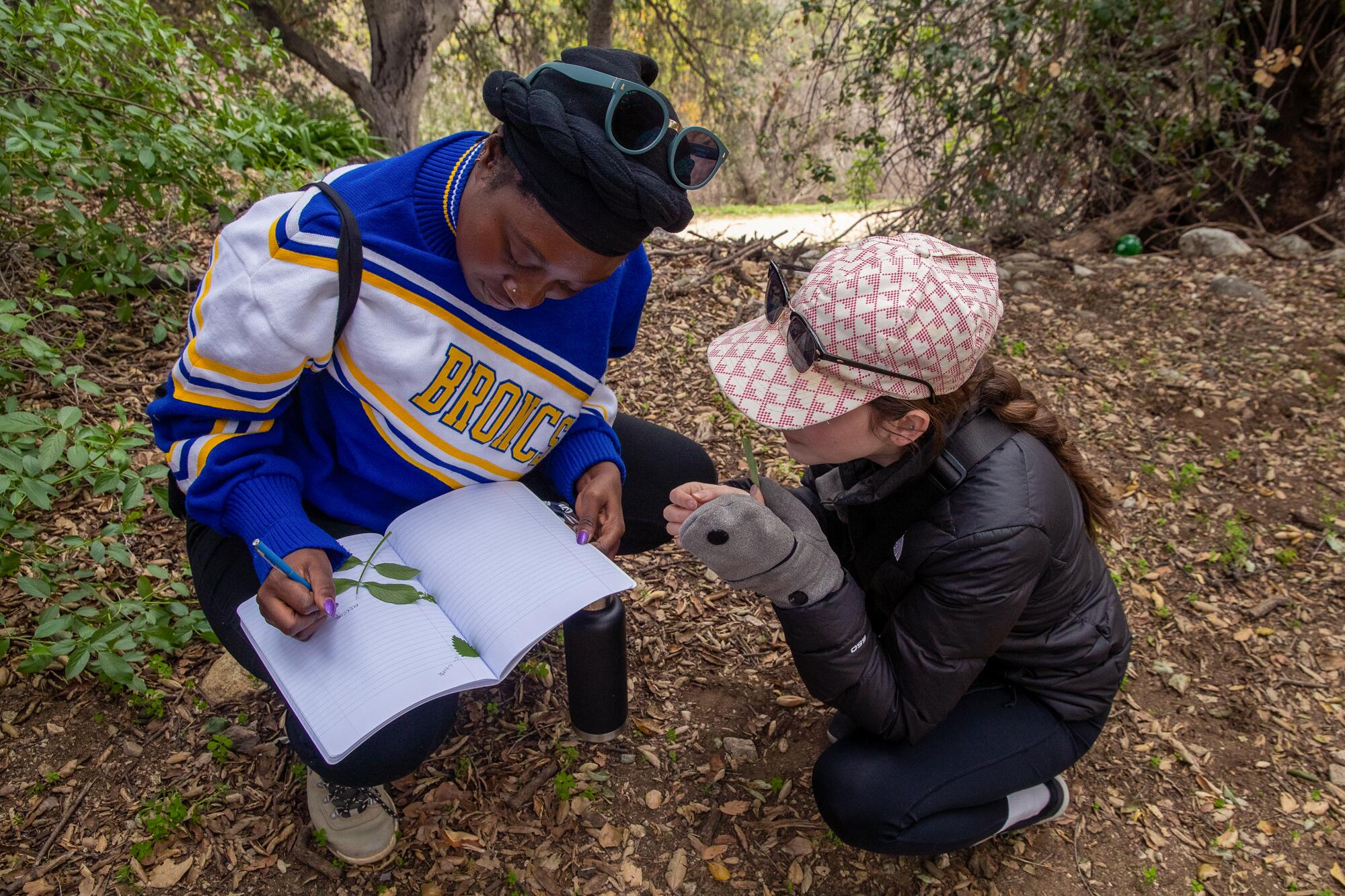
Mario Apuzzo, a business major at USC, invited two classmates to join him on the herb walk. “I found out about USAL over Instagram,” he said. “I was very attracted to the visuals of it. Last week I tried the forest therapy class, and it was completely transformative.”
That evening, USAL hosted its first roundtable dinner party at its new bricks-and-mortar space in Silver Lake. Like nearby boutiques, USAL will sell locally made goods like candles and ceramics alongside its branded merchandise — hoodies and sweatpants with trippy, fashion-forward graphics. Washington hopes that the store can uplift the local community by selling their goods and that the brand expansion will allow proceeds from USAL merchandise to keep the ticket price of events as low as possible.
Olivia Matthews, a growth manager at a startup, was one of 40 attendees at the dinner. She grabbed a glass of natural wine before starting a conversation with three other women. All four attended the dinner alone, hoping to meet like-minded people. Despite being new to L.A., Matthews is already a USAL veteran. Since July, she’s taken a woodworking class, gone on the herb walk, experienced forest therapy and participated in the monthly outdoor gear swap.
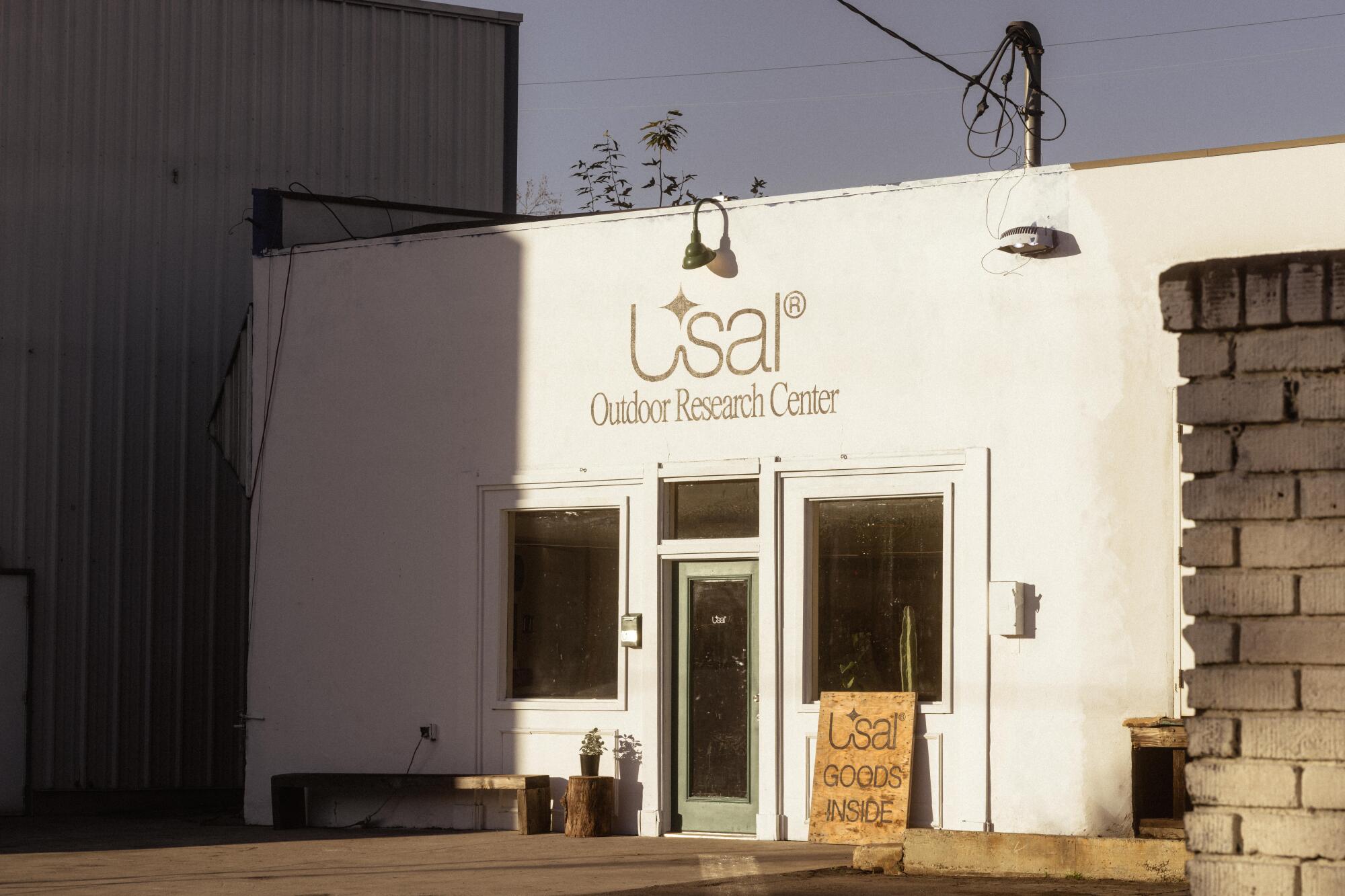
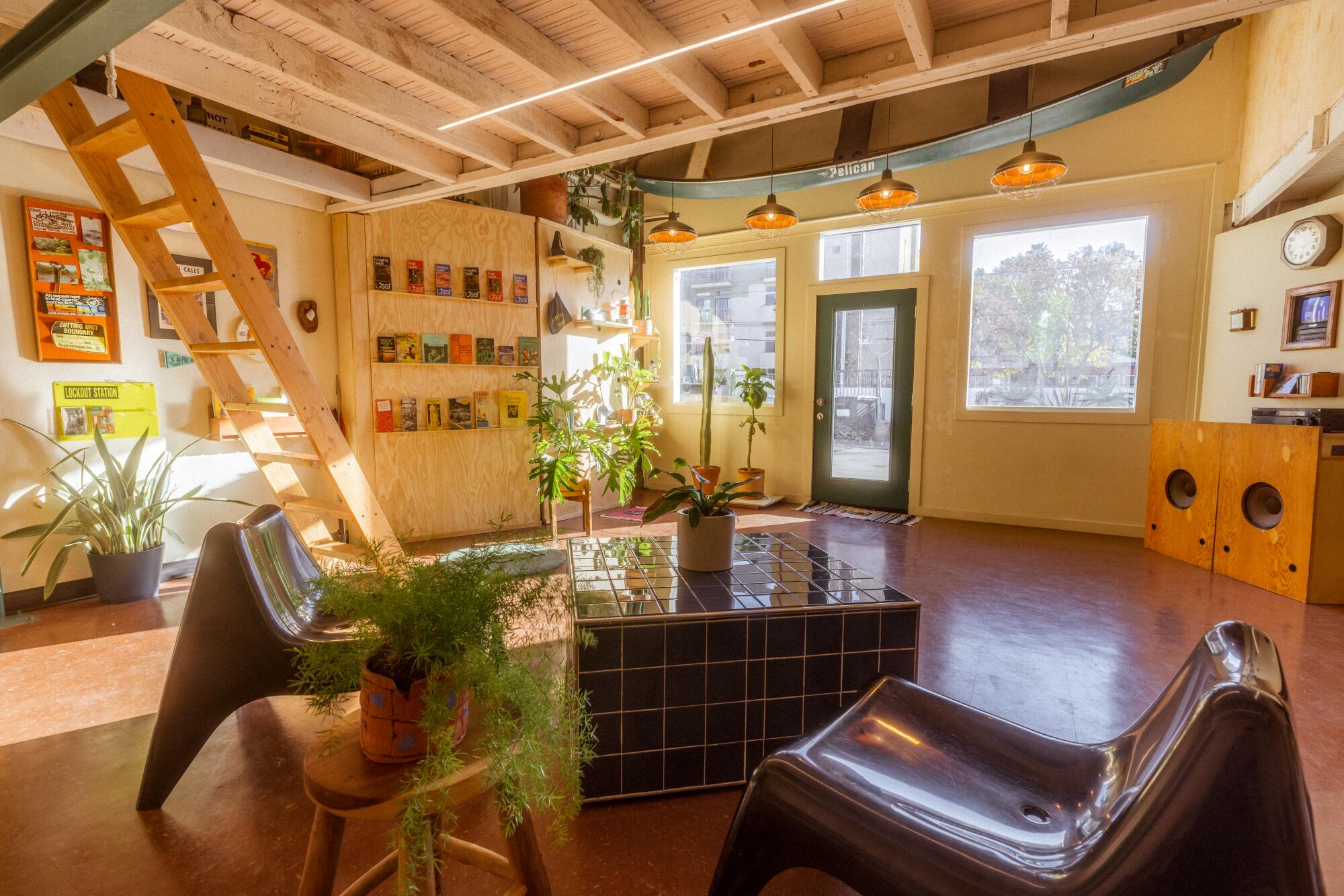
“These events allowed me to meet people, learn more about things I can do nearby, connect to nature and pursue new hobbies,” Matthews said. “They were such a great introduction to L.A. for me, and were so accessible and approachable. As I’ve continued going to USAL events, I’ve started seeing the same people and it’s been really nice to start building that community over time.”
USAL was built to introduce curious L.A. residents to the wonders of the great outdoors, but despite the diversity of attendees, there’s a clear common thread. “The flag we hang in terms of what our Instagram looks like, our images and videos, is attracting a certain type of creative person,” Washington says. “We’re coming to the outdoors with a fresh perspective that’s different from other outdoors brands. It’s naturally bringing people that identify with certain tastes together and not the kind of people who are arrogant.” It’s no accident that the group looks like something of a cool kids club, but regardless of the stylish sneakers or hats worn at the herb walk or roundtable dinner, the community stays true to its for-everyone roots. Anything less would result in the same barriers Washington faced a year ago.
“Have you noticed none of us have asked what the others do for a living?” Matthews asked her new friends by the firepit outside USAL headquarters. “That’s how you know this is different.”
